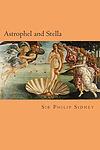Philip Sidney
Sir Philip Sidney was an English poet, courtier, scholar, and soldier who is remembered as one of the most prominent figures of the Elizabethan age. Born on November 30, 1554, in Penshurst, Kent, he became famous for his sonnets, his long prose work 'The Countess of Pembroke's Arcadia', and 'The Defence of Poesy', which is considered one of the most important works of literary criticism in English literature. Sidney's works have influenced many writers, and he is celebrated for his skillful and harmonious verse. He died on October 17, 1586, at the age of 31, from a wound received at the Battle of Zutphen.
Books
This list of books are ONLY the books that have been ranked on the lists that are aggregated on this site. This is not a comprehensive list of all books by this author.
-
1. The Countess Of Pembroke's Arcadia
The book in question is a pastoral romance that intertwines poetry and prose to tell the complex, interwoven tales of princes, knights, and ladies in an idyllic, fictional version of ancient Greece. The narrative follows the adventures of two cousins, who, disguised as shepherds, flee their homeland and find themselves in Arcadia, a pastoral paradise. There, they become entangled in the lives and loves of the local inhabitants, embarking on chivalric quests and navigating a series of romantic entanglements, political intrigues, and moral dilemmas. The work is celebrated for its rich language, elaborate storytelling, and the exploration of themes such as the nature of virtue, the complexities of love, and the pursuit of honor.
The 7152nd Greatest Book of All Time -
2. Astrophel And Stella
The book is a collection of Elizabethan sonnets and songs that tell the story of the speaker's unrequited love for the beautiful and unattainable Stella. Through a series of passionate and articulate poems, the speaker, Astrophel, explores themes of love, desire, and jealousy, often employing astronomical imagery to reflect the heights of his adoration and the depths of his despair. The work is notable for its rich language and the way it captures the complexities of love, as well as for its influence on the development of the English sonnet form.
The 7152nd Greatest Book of All Time -
3. An Apology For Poetry
The book in question is a seminal work of English literary criticism from the Renaissance period, defending poetry against contemporary critics who deemed it morally suspect and a waste of time. The author argues that poetry, far from being frivolous, is a noble art that combines the philosophical with the imaginative, teaching and delighting readers. He asserts that poets are the "unacknowledged legislators of the world," capable of inspiring virtue and greatness. The work serves as a passionate justification for the value of poetry, emphasizing its unique ability to move and educate its audience, transcending the limitations of history and philosophy.
The 7152nd Greatest Book of All Time


